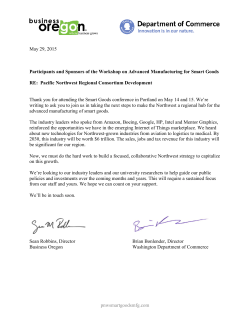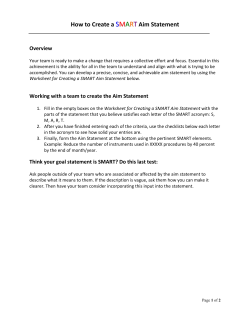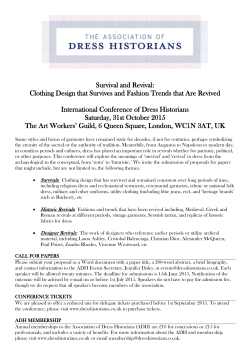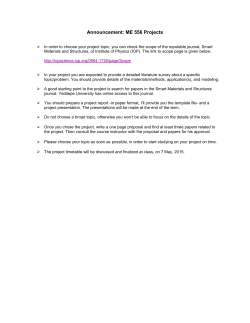
GCSE Textiles 2015: The written Exam (2 sections)
GCSE TEXTILES 2015 Presdales School The Written Exam – 2 sections Section A This asks you to design a textile product. The exam board will give some information on the theme and design context. Approximately 25% of the paper marks are for Section A. Section B These questions will be based on the subject content listed in your revision booklets. It will test your subject knowledge and understanding and is worth about 75% of the paper marks. Garments inspired by the theme of Science and Technology. Where to start your preparation ! Designs inspired by Science and Technology • MIND MAP IDEAS • PRODUCE AN IMAGE BOARD • Use “pinterest” for images Garments skirts, dresses, tops, trousers, shorts, jackets, sports wear. • MIND MAP IDEAS • PRODUCE AN IMAGE BOARD Where to start? Space Age Fashion This print is what eye neurons looks like at a cellular level. EEG Brainwaves Dress Double Helix DNA Dress http://www.shenovafashion.com/products/neuroscience-dress-trippyretina-print-science-geek-sleek-chic http://www.sciencedaily.com/news/matter_en ergy/wearable_technology/ SMART MATERIALS: Smart material has one or more properties that can be considerably altered. They change in response to changing conditions in their surroundings (eg heat, moisture)or in the application of other directed influences(eg electricity). http://www.wisegeek.com/what-is-thespeedo-fastskin.htm#didyouknowout http://smarteconomy.typepad.com/smart_eco nomy/2006/09/lumalive_a_smar.html What next?... Consider how you can use these new fabrics with our existing textiles manufacturing technologies to generate two different design ideas for a garment. • In the exam they may provide you with a Mood Board. • They will most likely ask you for 2 specification points • You will probably be asked to develop the idea • Possibly evaluate why it meets your specification points • Can you think of any other tasks you might be asked to do? Think back to your Mock Exam. Eg List 3 points you will need to find out before you begin designing, Design a fabric bag for the product, create a repeat pattern, Changes you could make to suit batch production, suitable labelling, step by step decorative technique used. Consider your response to these questions.
© Copyright 2025





















